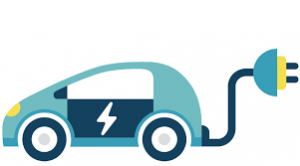 The Maryland Public Service Commission issued an order on January 14, 2019, approving Electric Vehicle (“EV”) Portfolio Programs for Maryland’s electric distribution utilities. The EV Portfolio Programs aim to increase EV usage in Maryland by expanding EV tariff options, furthering utility investment in EV charging infrastructure, and offering customer programs for EV owners.
The Maryland Public Service Commission issued an order on January 14, 2019, approving Electric Vehicle (“EV”) Portfolio Programs for Maryland’s electric distribution utilities. The EV Portfolio Programs aim to increase EV usage in Maryland by expanding EV tariff options, furthering utility investment in EV charging infrastructure, and offering customer programs for EV owners.
The Proposed EV Portfolio Programs:
Case No. 9478 kicked off with a petition filed on January 22, 2018, by the Public Conference 44 Electric Vehicle Work Group Leader, with the support of the utilities and several other stakeholders, to implement a statewide electric vehicle proposal. The proposals for each participating utility are summarized below:
Baltimore Gas and Electric: BGE’s proposed program included installation of 18,455 EV chargers, costing $48.1 million. For residential customers, BGE proposed $9.7 million in rebate programs that could be pared with BGE’s existing “Whole-House Time-of-Use Rate” for customers with EV chargers. BGE also proposed $14.1 million in rebates and incentives, as well as a “Demand Charge Credit” program, for non-residential customers who install EV chargers for fleet use. In addition to these customer programs, BGE proposed a public network of 1,000 EV chargers, costing $17 million, and a grant program for 490 EV chargers, costing another $7.2 million.
Pepco and Delmarva: Pepco and Delmarva proposed similar programs, including a combined 3,038 EV chargers costing $41.9 million. The Pepco and Delmarva proposals also included residential rebate programs, off-peak charging credits, and expansion of Pepco’s “Whole-House Time-of-Use Rate” to Delmarva. The price tag for the Pepco and Delmarva residential programs was $5 million. For non-residential customers, Pepco and Delmarva proposed rebate and incentive programs for EV chargers, a demand charge credit program, for a combined cost of $10 million. Pepco and Delmarva also proposed installing 608 public EV chargers, costing $16.9 million. Pepco and Delmarva proposed $6.9 million in additional rebate and grant programs for installation of EV chargers. The proposed “DC Fast Charging with Energy Storage” demonstration project is aimed at minimizing adverse grid impacts from installation of fast charging stations, for another $2.8 million.
Potomac Edison: Potomac Edison also proposed rebates, incentives, public chargers, and EV tariffs, with a total of 2,259 EV chargers costing over $12.3 million.
The utilities proposed ratepayer financing for the $104.7 million investment in new infrastructure charging portfolios, meaning customers will pay for these programs through electric distribution rates or customer surcharges over a five year period. However, there are other state and local incentive programs available that may offset some of the costs for the new chargers. Some of the costs would also be recovered from charging customers that use public or non-residential chargers. As discussed below, the Commission did not approve these programs as proposed, reducing the program size and the cost to Maryland ratepayers.
The Commission’s Decision (Order No. 88997):
In its order, the Commission reduced the BGE and Potomac Edison residential rebate programs to a total of 1,000 each. The Commission also limited the rebate to $300 (compared to the proposed $500 rebate). The Commission approved the proposed Pepco and Delmarva residential rebate offerings. The Commission also approved continuation and expansion of utility “Whole-House Time-of-Use Rate” offerings for residential customers. Regarding the non-residential customer proposals, the Commission limited its approval to rebates and incentives for EV chargers installed at multi-unit or multi-tenant dwellings. The Commission also approved a limited number of rate-payer funded public charging stations: 500 for BGE, 100 for Delmarva, 250 for Pepco, and the full 59 proposed by Potomac Edison. The Commission rejected the proposed $14 million in innovation rebate and grant programs, as well as the proposed Pepco and Delmarva demonstration projects. The Commission also directed all the utilities to recover costs through traditional ratemaking in a future rate case (as proposed by BGE, Delmarva, and Pepco), rather than Potomac Edison’s upfront customer surcharge.
The next step is for the utilities to develop and submit tariff proposals to implement the EV programs approved by the Commission.
If you have any questions about the Maryland Public Service Commission’s decision on the Statewide Electric Vehicle Program or other regulatory issues, contact Eric Wallace or any of our mid-Atlantic energy lawyers.



No Comments